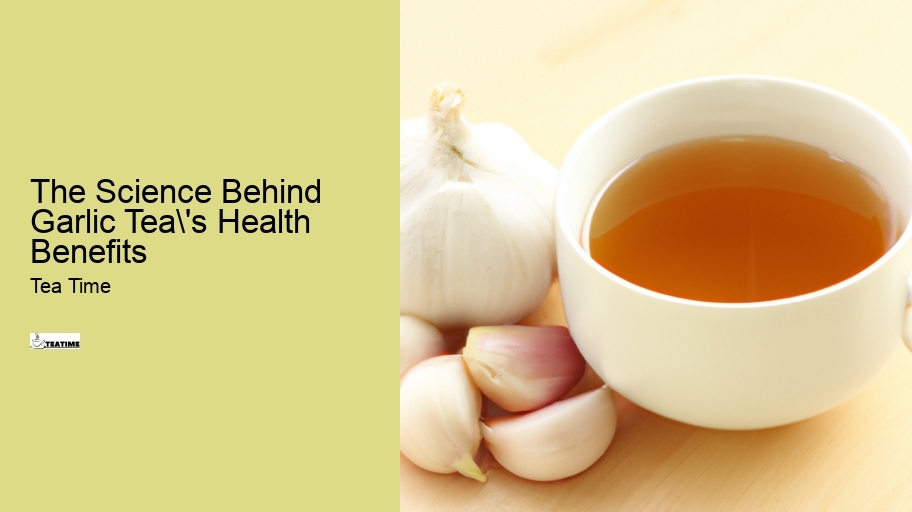

Garlic tea is a traditional remedy for respiratory health, known for its natural antibacterial and antiviral properties.
The warm steam from garlic tea can also provide symptomatic relief for nasal congestion. Inhaling the steam helps to open up nasal passages, making it easier to breathe. This makes garlic tea a comforting choice during cold and flu season.
Regular consumption of garlic tea, particularly during times of heightened respiratory infections, can bolster the respiratory system. It's a natural, soothing way to support lung health and maintain respiratory wellness.
While garlic tea's pungent flavor is distinctive, it can be softened and sweetened naturally to suit different palates. Adding honey is a popular choice, not only for its sweetness but also for its throat-soothing properties. Honey complements garlic’s flavor and enhances the tea's overall health benefits.
Another natural sweetener is stevia, a plant-based sweetener that provides sweetness without the calories. This can be a good option for those watching their sugar intake. Alternatively, adding a slice of apple or a few berries to the tea while brewing can impart a subtle fruity sweetness.
These natural sweeteners do not just enhance the flavor; they also contribute to the healthful properties of garlic tea. Organic Certification Choosing natural over processed sweeteners ensures that the tea remains a healthy beverage choice.
Garlic tea is esteemed as a natural remedy with a wide range of health benefits. Its use in traditional medicine spans centuries and cultures, mainly due to its potent antibacterial, antiviral, and anti-inflammatory properties. Drinking garlic tea can help boost the immune system, alleviate cold symptoms, and promote overall well-being.
The key to its effectiveness lies in the compounds released when garlic is crushed or chopped.
Incorporating garlic tea into a daily health regimen can be a proactive step towards natural wellness. It's a simple, home-made remedy that can be easily integrated into any lifestyle, offering a holistic approach to health maintenance.
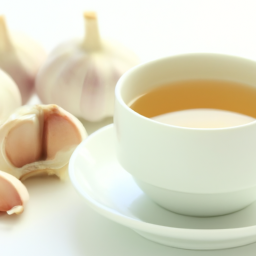
Garlic tea's anti-inflammatory properties make it a beneficial drink for those dealing with inflammation-related conditions. Cholesterol Management Chronic inflammation is a root cause of many health issues, and the natural compounds in garlic, especially allicin, have been shown to help reduce inflammation in the body.
Regular consumption of garlic tea can aid in the management of inflammatory conditions like arthritis, heart disease, and certain types of headaches. Its anti-inflammatory effects can also contribute to improved overall health and a reduction in the risk of chronic diseases.
While garlic tea can be a supportive element in an anti-inflammatory diet, it should be consumed as part of a balanced and varied diet. Consultation with a healthcare professional is recommended, especially if you have existing health conditions or are taking medication.
The right brewing equipment can enhance the experience of making and enjoying garlic tea.
For infusing garlic in water, a fine-mesh strainer or a tea infuser can be very useful. These tools allow the garlic to steep effectively while making it easy to remove the pieces after brewing, ensuring a smooth tea. For those who prefer a stronger flavor, crushing the garlic directly into the water can release more of its beneficial compounds.
When serving garlic tea, a heat-resistant glass or ceramic cup can enhance the experience. Nutritional Value These materials retain heat well, keeping the tea warm for a longer time. Having the right equipment not only makes the brewing process easier but also adds a touch of elegance to the ritual of tea drinking.
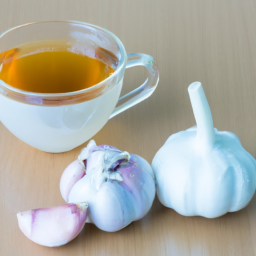
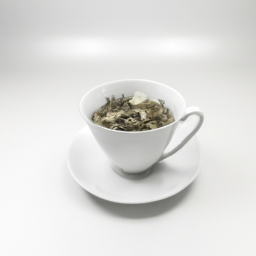
The quality of garlic used in making tea significantly impacts both its flavor and health benefits. Fresh, organic garlic is ideal, as it's free from pesticides and contains higher levels of beneficial compounds. Look for garlic that is firm, with intact skin and no signs of sprouting or moisture, as these are indicators of freshness.
Locally sourced garlic can be a great option, as it's likely to be fresher than garlic that has been transported over long distances. Visiting local farmers' markets or health food stores can provide access to high-quality, locally-grown garlic. This also supports local agriculture and reduces the environmental impact associated with transportation.
If fresh garlic is not available, high-quality dried garlic can be a suitable alternative.
Garlic tea may have a role in supporting hormonal balance, an important aspect of overall health. Natural Health The natural compounds in garlic, particularly sulfur-containing compounds, are thought to influence hormonal activity in the body. This can be beneficial in regulating hormones related to stress, metabolism, and reproductive health.
For women, especially, garlic tea can be supportive during different phases of the menstrual cycle, potentially easing symptoms like bloating and mood swings. Its anti-inflammatory properties can also offer relief from menstrual cramps.
While garlic tea can be a natural aid in maintaining hormonal balance, it's important to consume it as part of a balanced diet. Consulting with a healthcare provider is recommended, particularly for those with hormonal disorders or those on hormonal medications.
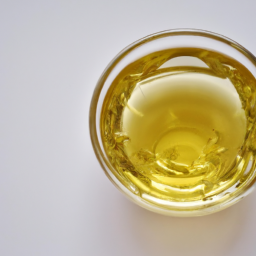
Yes, garlic tea can be beneficial in relieving symptoms of colds and flu. Garlic has natural antibacterial and antiviral properties that may help in fighting infections. Drinking warm garlic tea can also provide soothing relief for sore throats and congestion.
To make garlic tea, start by peeling and lightly crushing 2-3 cloves of fresh garlic to release their oils. Steep the crushed cloves in a cup of hot water for about 5-10 minutes. Strain the garlic and add lemon or honey to taste, if desired. Adjust the amount of garlic and steeping time according to your taste preference.